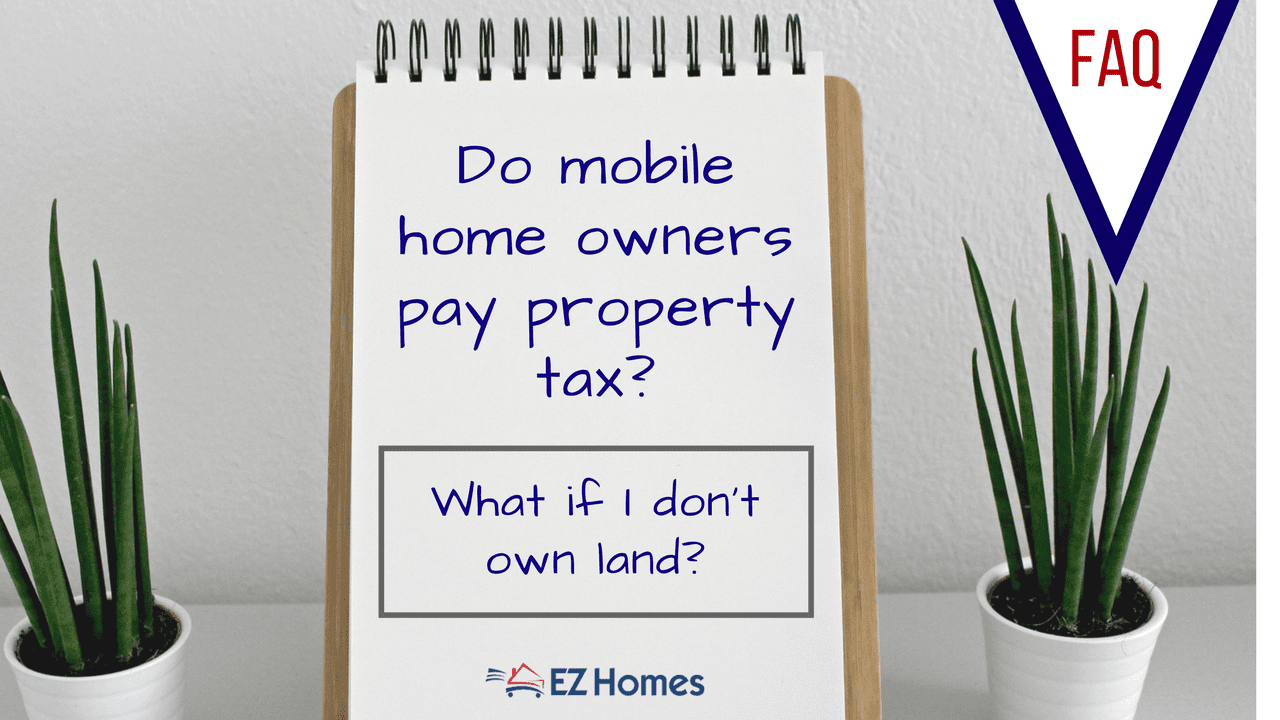
At one point or another, every mobile home owner needs to know the answer to this question: do mobile home owners pay property tax?Most states take annual property taxes on almost all residential properties, private businesses and vacant land. However, if there is any property that can go from being personal property to real property and back again, it’s a mobile home.
Not every mobile home is considered real property. And it has nothing to do with being a single-wide or a double-wide. It depends on whether the single-wide or double-wide is attached to real estate. So, do mobile home owners pay property tax? Read on to learn the answer.

The main reason why mobile homes fail the real property test is that they must be on land owned by the homeowner. In rare cases, a long-term lease could qualify and satisfy that property requirement. In general, mobile homes on leased land or in mobile home parks classify as personal property regardless of their construction or size. Even if the owner of the land were related to the owner of the mobile home, it would still qualify as personal property. Unless the owner of the land is the owner of the mobile home, then it cannot be real property.
A mobile home can transform from personal property to real property and vice versa with just the stroke of a pen. The home does not even need to undergo any physical changes to become real property. For example, let’s say your brother owns a mobile home and keeps it on land that you own. The mobile home classifies as personal property. But now let’s say that your brother transfers the ownership of that mobile home to you. Because you already own the land, the mobile home automatically becomes real property.
If you do not pay the taxes on a mobile home that classifies as real property, your home could face foreclosure. If this happens, you have the option of selling the mobile home for the delinquent taxes. However, most mobile homes facing tax foreclosures are rarely in a livable state to attract new buyers. You may find yourself owing the government money that you don’t have. It is important to note that if your mobile home classifies as personal property, then the home cannot be foreclosed.

For the most part, you could say that personal property taxes and real property taxes are similar. The overall tax capacity extension rates, property tax classification rates, market value tax rates and applicable tax credits apply to both property types for the payable year. However, the tax amounts differ since they will take into consideration the value of the land and other auxiliary improvements.
The critical difference between real and personal property taxes is when they are due. A mobile home classified as personal property is assessed and taxed in the current year. Meanwhile, taxes on a real property mobile home are evaluated in the current year and taken the next.
Local authorities and transport commissioners control the movement of most mobile homes. When you need to move your mobile home, you have to present a certified statement from an assessor and an auditor-treasurer located in the same county as your home. The statement verifies that they’ve assessed your house. It also states that they have cleared the taxes for your personal or real property before giving you the permit.
Don’t forget to inform the assessor of your move to make sure that they update the county assessment records. If you fail to attain the right documents before moving your mobile home, you could incur a hefty fine.

In a nutshell, yes! Mobile homes classified as personal property register at the Department of Motor Vehicles. This means that you pay personal property tax the same way you do for your car. For a mobile home located on land you own, it is considered real property, and therefore you will pay real estate tax.
Regardless of what loopholes you try to find, yes, mobile home owners do pay property taxes. Whether you’re renting or purchasing land to build a new mobile home property, you need to factor in the taxes. The exact amount due will vary from state to state, but regardless of where you live, you will pay property taxes for your mobile home.
Dan Leighton has been working in the mobile home industry for over a decade. His focus has been on sales and customer relations - making sure each person in the transaction is comfortable and fully transparent. He has a wife and one son. Dan continues to look for innovative ways to help both sellers and parks get the most bang for their buck.